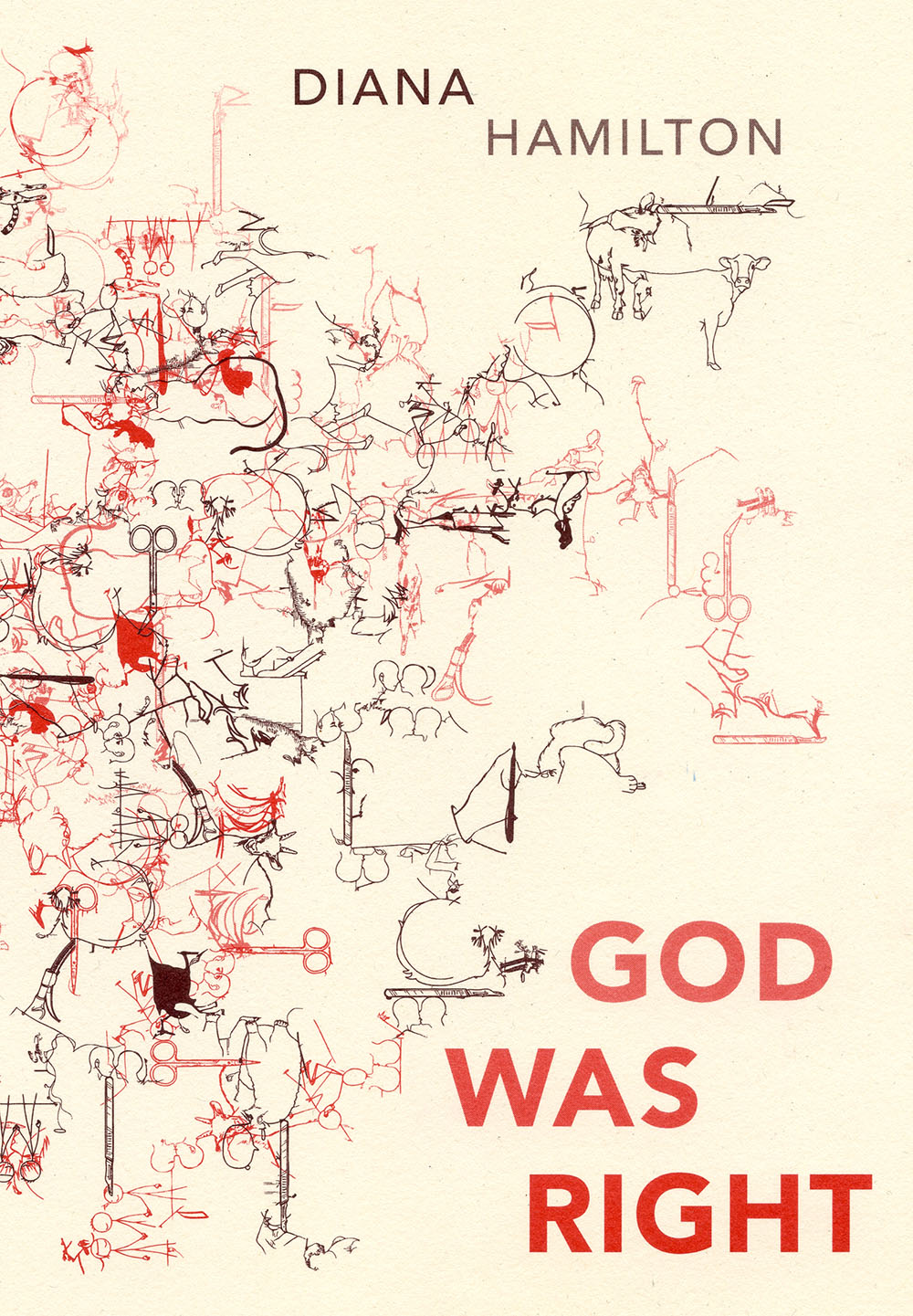God wanted me to become the immortal protagonist of de Beauvoir’s All Men are Mortal, the title of which suggests that said protagonist must have been misgendered:
women live forever, in order to see that there is no point in love, or in cats.

God wanted me to become the immortal protagonist of de Beauvoir’s All Men are Mortal, the title of which suggests that said protagonist must have been misgendered:
women live forever, in order to see that there is no point in love, or in cats.
Hamilton has something genuinely distinctive, insightful, and important to tell us…
Craig Dworkin
God Was Right collects poems that take the form of arguments, essays, and letters. The title poem argues that God was right to make us love cats (and then watch them die); another categorizes the way women like to be kissed; one proposes a sex ed that takes into account persuasion and pleasure; another argues men should write bad poetry; a letter tries to make friendship about love; a five-paragraph essay tries to disarm heartbreak via analysis; etc. These poems/essays are hyperbolic attempts to write something adequate to a feeling.
Rainer Diana Hamilton is the author of three books and four chapbooks, including God Was Right (Ugly Duckling Presse 2018) and The Awful Truth (Golias Books 2017). They write, broadly, about the forms that dreams, art, and love have taken. Hamilton’s critical and creative work has appeared in frieze, Amodern, Changes Press, the Brooklyn Rail, the Washington Post, BOMB, Prelude, et al. They received a PhD in Comparative Literature from Cornell University, with a dissertation—Style and the Experiment—that considered the persistence of something like a ‘single-author style’ even in works produced by collage, chance procedure, or other means of undermining it. Hamilton has taught first-year and creative writing at Cornell University, CUNY, the Bard Prison Initiative, and the Poetry Project at St. Mark’s Church.
In the Gorgias, Plato triangulates poetry and philosophy by inextricably linking the former to rhetoric: the art of persuasion, and the linguistic hinge between freedom and domination. But Plato’s foundational philosophical texts are themselves more poetic than they would like to admit, and Hamilton’s poems drop his philosophical tradition straight into the abyss: Platonic dialogues for our social-media age, in which the mode and subject of discourse are collapsed, revealing all their naked truths in a cold, unforgiving, inescapable light. If nothing else, these poems will convince you that Hamilton has something genuinely distinctive, insightful, and important to tell us about poetic and theoretical discourse.
Craig Dworkin
I love this book. I am grateful for it. I wasn't prepared for all of the risks Hamilton takes - sometimes with aplomb/sometimes not, which is evermore compelling and trustworthy - and I have been a longtime reader. It's a book that, if you invest in the experience, could usher you into a dark night of the soul, where claims to self and knowledge are only won after being rigorously refuted. Woolf said that Montaigne's achievement was "a miraculous adjustment of all these wayward parts." The beauty (transformative capacity) of these poem essays is in how they further the possibility that she, and we, get to live more openly with our meanings restored - a farewell to abjection.
Stacy Szymaszek
ISBN: 978-1-946433-04-6
Trade Paperback
Perfect-bound. 144 pp, 5.5 x 8 in
Publication Date: November 01 2018
Distribution: Asterism Books (US), Coach House Books via Publishers Group Canada (Canada), Inpress Books (UK)
Series: Dossier